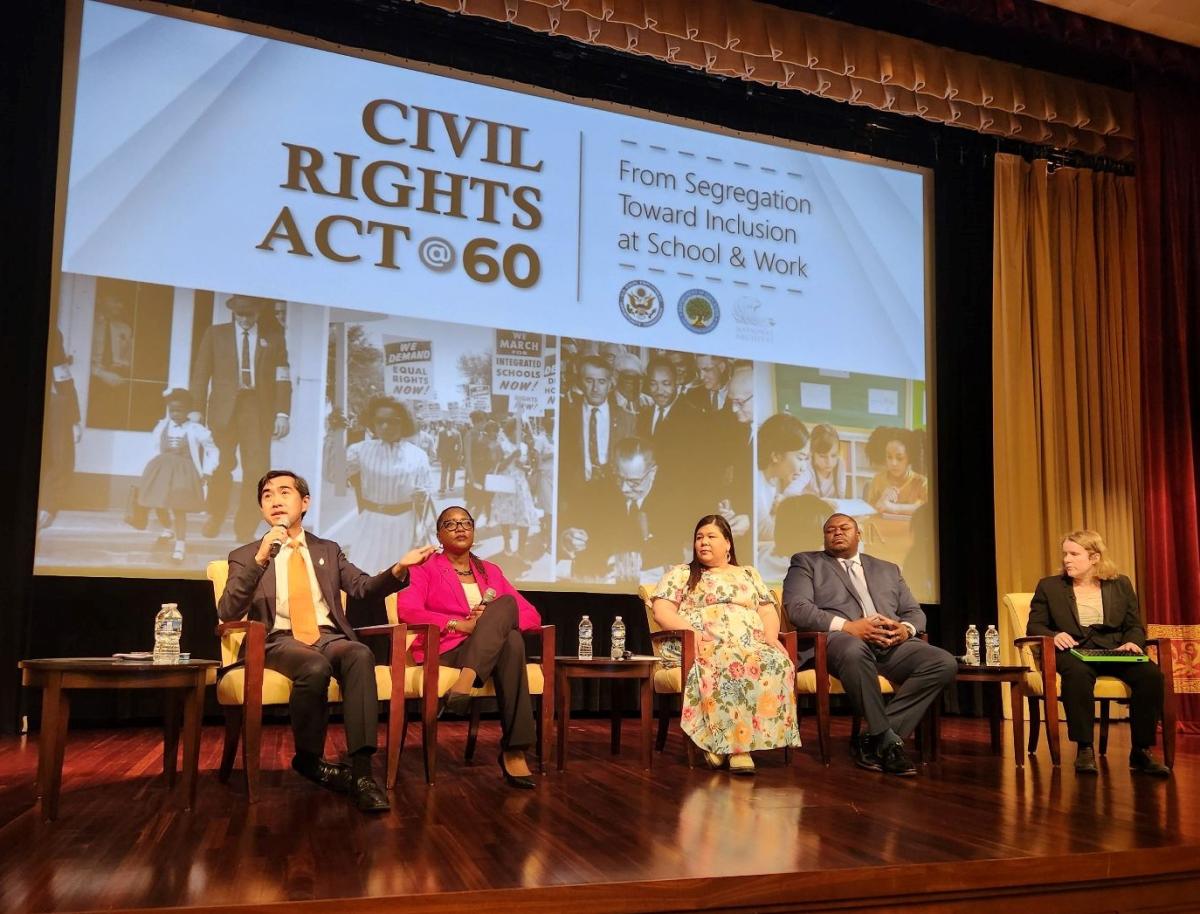
National Archives Commemorates 60 Years of the Civil Rights Act
By Pete Lewis | National Archives News
WASHINGTON, June 26, 2024 – In celebration of the 60th anniversary of the ratification of the Civil Rights Act of 1964, the National Archives in Washington, DC, held panel discussions, June 25, focusing on how efforts to address overt, purposeful exclusion in schools and workplaces have given way to efforts promoting inclusion. This event was co-hosted with the U.S. Equal Employment Opportunity Commission (EEOC) and the Department of Education's Office of Civil Rights.
Monica Woods, Chief of Staff at the National Archives, gave opening remarks. She encouraged all Americans to view the documents held at the Archives which ensure the inalienable rights of our nation’s citizens.
“In the records of the National Archives, you can find the original Civil Rights Act, along with papers, photographs and audiovisual recordings documenting the hard work of the EEOC, the U.S. Department of Education, and many other agencies in implementing and enforcing the legislation in the wake of its passage,” Woods said. “I hope you have the opportunity to visit some of our exhibits, including our Records of Rights exhibition in the David M. Rubenstein Gallery, which explores the long struggle to ensure the promises of the Declaration of Independence, the Constitution, and the Bill of Rights are available to all Americans.”
Next, guests enjoyed a surprise video greeting from American singer-songwriter and pianist John Legend.
Government subject matter experts took the stage for the first panel discussion. These included Assistant Attorney General Kristen Clarke, Department of Justice, Civil Rights Division; Assistant Secretary Catherine Lhamon, Department of Education; and Chair Charlotte A. Burrows, EEOC. Michel McQueen Martin, journalist and correspondent for National Public Radio and WNET, served as moderator.
Civil rights advocates shared their thoughts during the second panel. These included Damon Hewitt, president and executive director of the Lawyers’ Committee for Civil Rights Under Law; Janai Nelson, president and director-counsel of the NAACP Legal Defense Fund; Monica Ramirez, founder/president of Justice for Migrant Women; and John Yang, president and executive director of Asian Americans Advancing Justice. Karla Gilbride, general counsel for the EEOC, served as moderator.
“We’re celebrating six decades of this enormously beautiful law,” Lhamon said. “I hope that we can expect six and six and six more decades where this is our shared expectation.”
The Civil Rights Act of 1964 is a historic civil rights and labor law that outlawed discrimination based on color, national origin, race, religion, or sex. This act, signed into law by President Lyndon B. Johnson on July 2, 1964, prohibited discrimination in public places, provided for the integration of schools and other public facilities, and made employment discrimination illegal. It was the most sweeping civil rights legislation since Reconstruction.
View the entire event on TheEEOC YouTube Channel.
Visit the National Archives online and the National Archives Catalog for more information on the Civil Rights Act.
Visit DOCSTeach to learn more about teaching the Civil Rights Act using online resources.
Check the National Archives Calendar of Events for information on future events.
